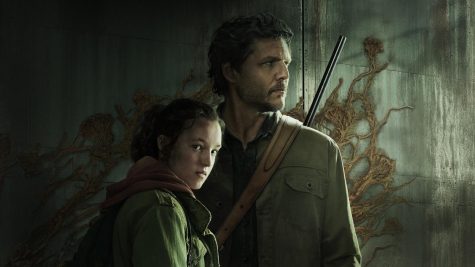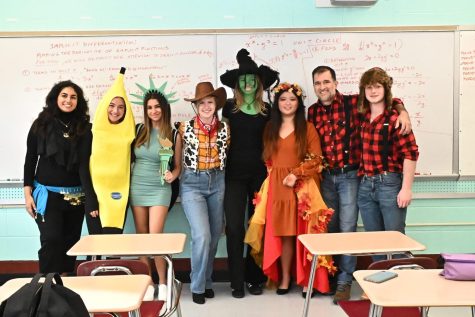Nelson Mandela, Liberator and Hero, Dies at 95
Nelson Mandela passed away on Thursday, December 5, at 8:50 PM. He was 95 years old.
His death was announced by Jacob Zuma, the president of South Africa, late Thursday night. Crowds immediately began to gravitate toward Mandela’s home as the country, and world, began its collective mourning.
Zuma later announced that Mandela’s funeral would be held on Monday, December 15, and that burial would be in the village of Qunu, where he spent his youth. Mandela is survived by his wife, Graca Machel, and his three daughters, as well as grandchildren and great-grandchildren.
Mandela, known for his powers of reconciliation and determination, ended the apartheid rule in South Africa. The word “apartheid” literally means “apartness,” in Afrikaans, a Dutch-African dialect of South Africa.
The apartheid government was run by the white minority of South Africa until Mandela’s negotiation for the end of the racist regime and his subsequent election to the presidency in 1994. Through a systematic regime of racism and oppression, the government would suppress the black majority by enforcing things like curfews and periodic document checks, as well as withholding the right to vote. The first time Mandela and other black individuals were allowed to vote in the nation was when he won the election.
Prior to his rise to his nation’s presidency power, Mandela was imprisoned for 27 years by the white minority South African government. He was convicted for treason after being accused of plotting to overthrow the apartheid government. After his release from prison in 1990, he negotiated with the South African government to end apartheid rule.
Mandela and the then-president, Frederik Willem de Klerk, won the 1993 Nobel Peace Prize “for their work for the peaceful termination of the apartheid regime, and for laying the foundations for a new democratic South Africa”, according to the Nobel Prize organization.
Interestingly, Mandela was African royalty, his father a tribal chief. His tribe name was Madiba, and he is known as such across South Africa. One of Mandela’s beliefs was that Africans should not deny their history in an attempt to gain equality; rather, he said that they should embrace their African heritage as their own. He was known to dress in traditional African garb as a statement.
After moving from his home village in his youth, he began a westernized education, but never denied his African roots.
Mandela spent 1964 to 1990 in prison. Reading voraciously, he spent this time furthering his education. He essentially finishing the education he had started when he was expelled for protesting from the University College of Fort Hare. This was the only black residential university in South Africa at the time.
Mandela, leading the African National Congress, initially was a man who believed firmly in peaceful resistance. However, as the conflict evolved and it became clear that this would not be effective, he began turning towards militancy.
Mandela was president from 1994 until 1999, when he declined to run for a second term. He was eighty years old at the end of his presidency.
Although he would retire from the presidency, he would not retire from the public eye. Mandela continued his activism after his presidency, especially in regards to AIDS, from which his son died.
Mandela is perhaps known best for his power to forgive. He never answered racism with racism, and never held a grudge, whether it be towards his imprisoners, the apartheid government, or the white race as a whole. He invited some of his prison guards to his presidential inauguration. As president, he tried to minimize black bitterness. In 1995, he created the Truth and Reconciliation Committee to balance the need for justice and reconciliation, blame and forgiveness.
He truly transcended the racism that was an ingrained part of his society.
However, many native South Africans feel that Mandela did not take enough action at home to help close the gap between the poverty stricken blacks and the prosperous white community during his time in the presidency.
People tend to gloss over the questionable parts of Mandela’s past- his relations with the Communist party and friendship with Castro, his militancy, all of which were arguably necessary at the time.
The questionable aspects of his life are overshadowed by the immense good he left not only on his country, but the world. Mandela achieved his goals with minimal bloodshed and avoided the full out war that so many had expected. His courage and power of positive outlook made him an unbelievable leader and liberator. He set an incredible standard for leaders after him, as well as the human race, to live up to.
Mandela’s actions had an undeniable, incredible impact on the modern world. We can only hope that the world will see a man or woman like him in the future.
Nelson Mandela is a figure that will forever be encapsulated in a saintly aura throughout history, and rightfully so. This man was larger than life, attempting and accomplishing what many thought was impossible, and with a grace and ease achieved by few.




















